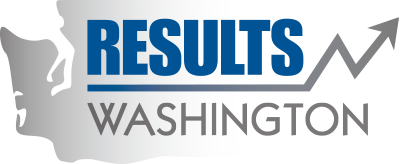Archived: Increase the number of battery electric vehicles in the state fleet
Zero Emission vehicles are a vital component of the state's overall strategy to improve overall vehicle efficiency and reduce greenhouse gas emissions. As vehicle technologies advance, Washington needs to remain on the cutting edge and uphold our commitment to environmental sustainability. Measure 2.3.b under Results Washington Goal 5 directly addresses Executive Order 14-04: Washington Carbon Pollution Reduction and Clean Energy Action and progresses the State of Washington forward in an environmentally responsible manner. As our fleet evolves it is important to demonstrate the relationship and role of electric vehicles versus hybrids in the evolution of various segments within our fleet.
On track to meet our goal of 611 fully Battery Electric vehicles in service by 2020. Currently,the state has 190 EVs in service. In October 2016, Washington State purchased 131 long range Chevy Bolts. DES is also supporting the initial EV infrastructure investment to install over 70 charging ports at over 20 agency facilities statewide. This effort enables numerous customers the option to replace internal combustion or hybrid vehicles with fully battery electric vehicles. The placement of the vehicle order and placement of chargers was achieved with extensive stakeholder work and support to identify “EV Ready” drivers and vehicles. As a result, the state received recognition from Western Washington Clean Cities for the best achievement in electric vehicles in 2016. The state expects to continue purchasing long range battery electric vehicles and deploy them with new/existing battery charging infrastructure.State agencies continue to become comfortable with new vehicle technologies and vehicle capabilities that meet their daily needs.
The adoption of advanced vehicle technology into our fleet means an ever-evolving fleet. DES Fleet Operations continues to analyze opportunities to replace ICE vehicles with Battery Electric vehicles. As we prepare for round 2 of EV & EVSE procurements, DES will incorporate lessons learned to implement best practices. These lessons can then help us predict, plan for,and implement future vehicle technologies as they become available in other segments of our fleets such as SUVs, Vans, and Light Duty Trucks. DES partnered with several charging station companies to implement fleet based solutions; to include creating accounts that support 100+ vehicles, improved access to vendor accounts for data collection, and providing charging companies with valuable feedback to structure their solutions to be “fleet friendly”. Solution such as these enable DES to continually add electric vehicle, while improving business efficiency and reducing costs.
Executive level support to identify and plan for the funding of Electric Vehicle Charging Infrastructure at agency facilities statewide. Agency focus and mandates to pilot and adopt new technologies thatwill meet agency business needs. To meet the target goals of fully battery electric vehicles adoption, State agencies need to take greater consideration,to include charging infrastructure, when making decisions for facility improvement or tenant improvement projects.
